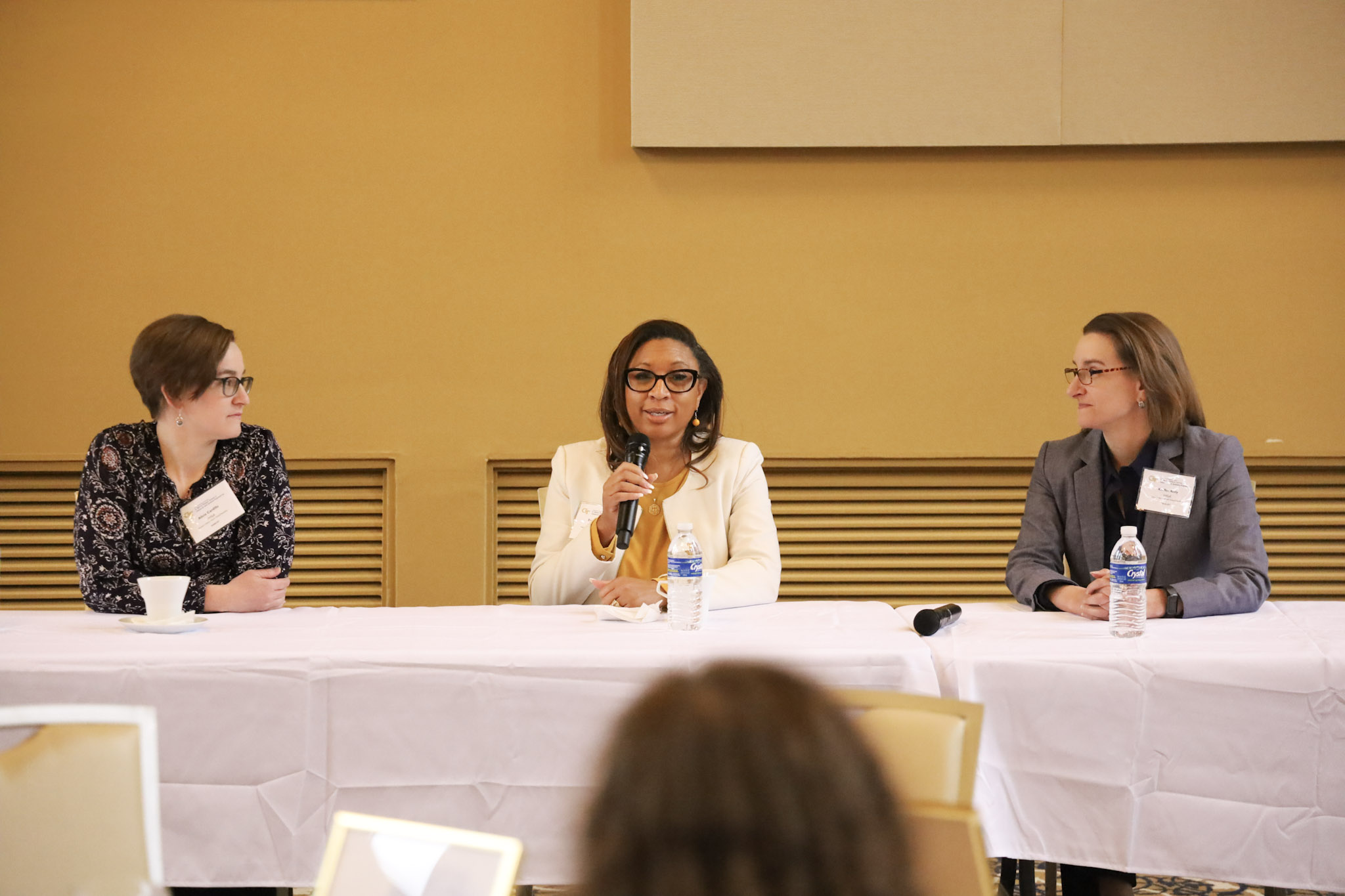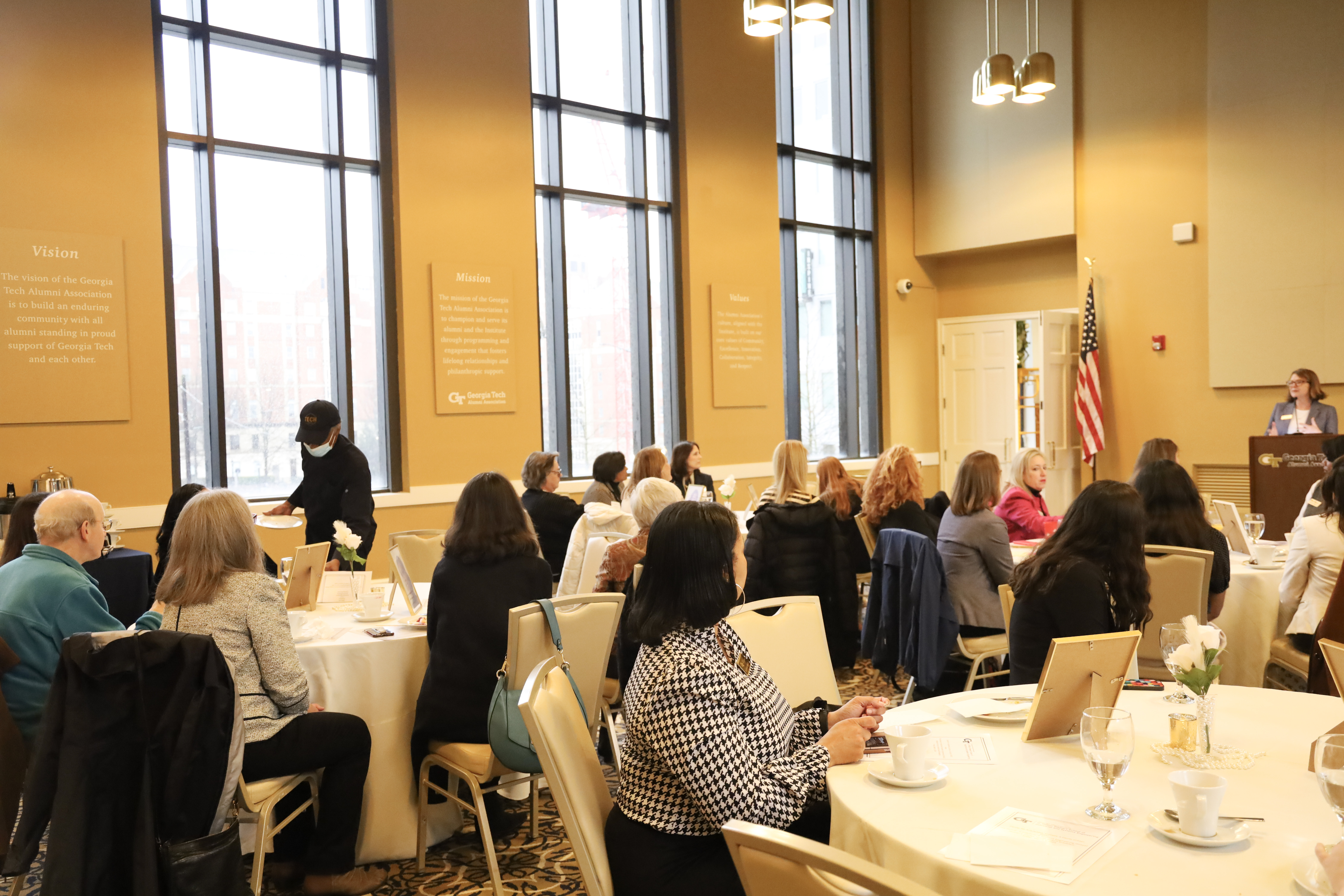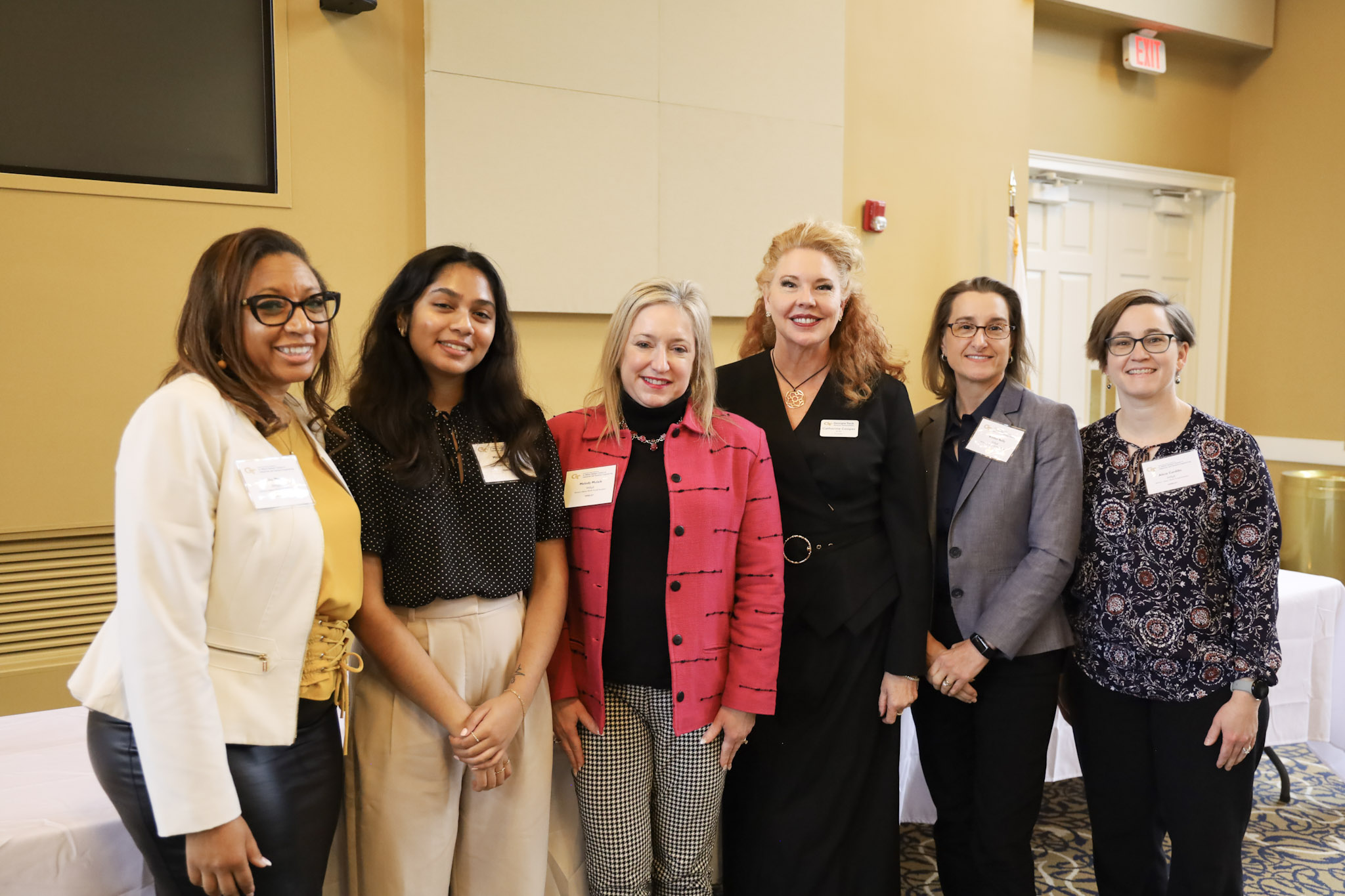In the golden-filled Georgia Tech Alumni House, six influential women from the world of Industrial and Systems Engineering (ISyE) gathered to mark the commencement of Women’s History Month.
Moderated by Catherine Cooper (IE ‘90), the panel included Alicia Cardillo (IE ‘03), Mitali Bidkar (IE ‘25), Kniffen Kelly (IE ‘95, MSIE ‘99), Errika Moore (IE ‘96), and Melody Mulaik (IE ‘90, MSHS ‘91), each bringing a unique perspective to the forefront of discussion.
As Cooper set the stage for the dialogue, she emphasized the importance of representation and perseverance among women at Georgia Tech, prompting a thoughtful reflection on the challenges and opportunities faced by women in engineering.
"Women make up less than 15% of CEOs globally; there are more men named 'John' than there are women CEOs. Enjoy being who you are; you will make it."
ISyE isn't just about getting data from point A to point B -- Cardillo, a Financial Crimes Executive at Truist, emphasized the people-oriented nature of the field and its significance in creating efficient business processes.
"Engineering is a male-dominated field, and I am here to help empower the next group of women leaders in engineering. You’ve got to be able to have someone to look up to that looks like you."
Kelly, CEO of Shebang LLC, additionally reflected on her journey from large corporations to entrepreneurship, focusing on the rich connections fostered with Georgia Tech.
"There is a certain reality that historically women have been underrepresented, but it is important to have people to look to as examples of what success could look like," Kelly remarked, highlighting the ongoing challenge of representation in engineering fields.
Diversity in engineering encompasses more than just gender. Moore, Executive Director of the STEM Funders Network, who completed her masters in the Ivan Allen College of Liberal Arts school of History and Sociology, shared a particularly poignant memory.
"I was told by a professor that there was no place for Black women in engineering, and I made it my mission to walk across that graduation stage and prove him wrong."
Moore's determination and subsequent success serve as a powerful reminder of the barriers still faced by women, and particularly women of color, in STEM fields.
Each of these women's career paths unfolded in ways they hadn't anticipated. Mulaik offered advice that resonated with many: "Be open and willing to take what comes your way – don't worry about a clear path. Reality is, nothing works out the way you think it's going to. Let go of perfection and embrace the process."
Mulaik’s journey from ceramic engineering to a leadership role in healthcare systems and coding strategies underscored the nonlinear paths that careers can take. In addition to the four alumnae contributing to the panel, ISyE wanted to be sure to include a student leadership perspective as well. For fourth year undergraduate student, Bidkar, voiced that switching to ISyE was driven by a desire to merge soft skills with hard analytics, offering a broader spectrum of post-graduation opportunities.
Bidkar's participation underscored the importance of student perspectives in shaping the future of engineering education and practice.
This kickoff panelist event was a celebration of progress, diversity, and the relentless pursuit of equality within the engineering discipline.
As we reflect on the powerful stories shared by these remarkable women, it's clear that their contributions are not only shaping the future of engineering but are also carving out space for the next generation of women engineers to thrive.
Many thanks to the alumnae, students, and staff who created and attended this seminal event in honor of Women’s History Month.



